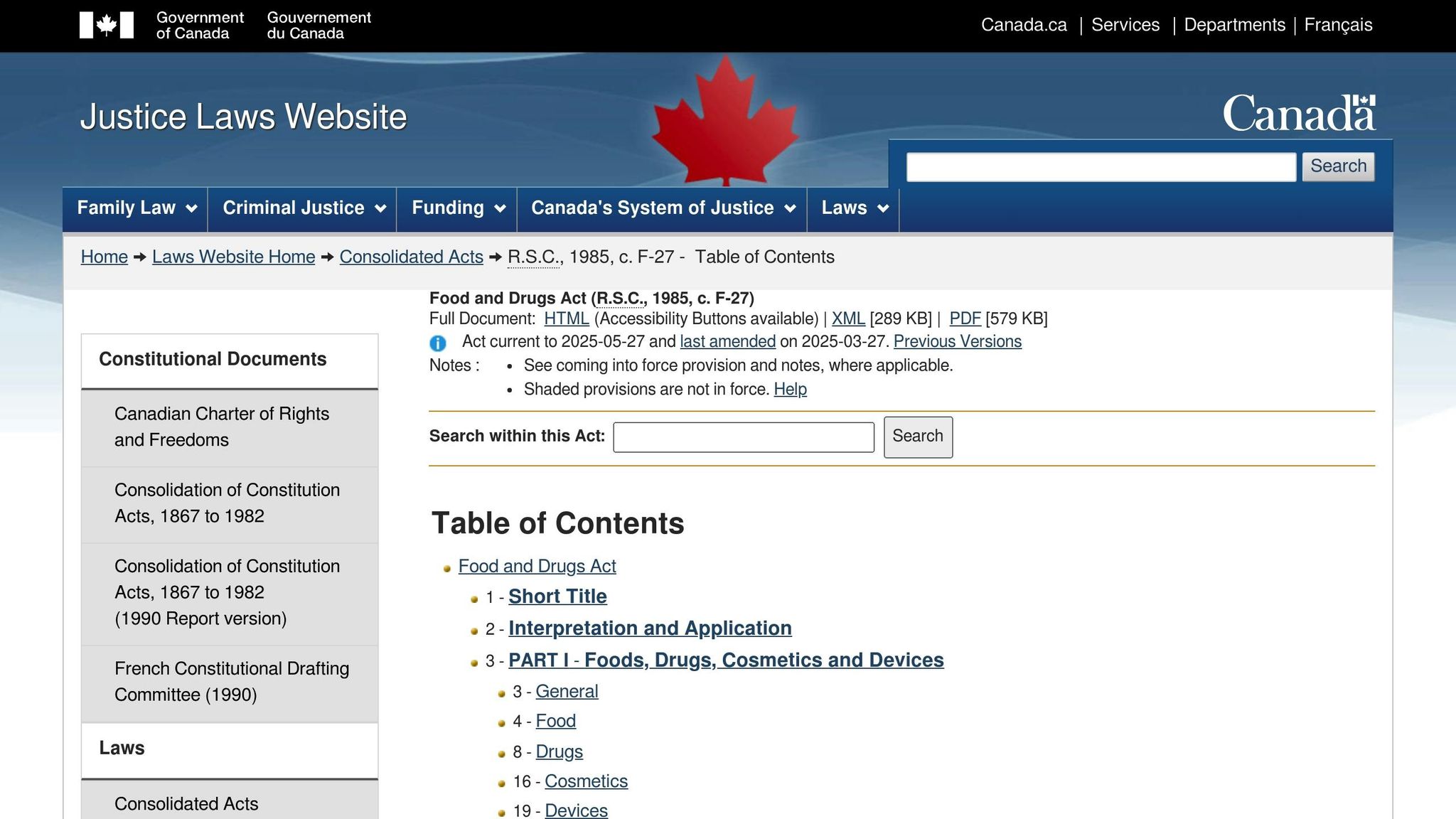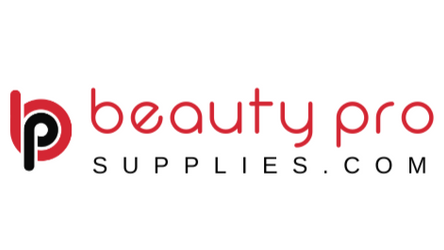
Med Spa Advertising Rules in Canada
To advertise a med spa in Canada, you need to follow strict rules to avoid fines, legal trouble, and reputational harm. Here’s what you need to know:
- Compliance is critical: Federal and provincial laws, like the Food and Drugs Act and the Competition Act, prohibit misleading claims, exaggerated results, and unapproved testimonials.
- Social media challenges: Platforms like Instagram and Facebook have restrictions on before-and-after photos and influencer promotions. Transparency and accurate claims are essential.
- Privacy laws matter: PHIPA and CASL regulate how you use patient information and send promotional emails. Explicit consent is mandatory.
- Penalties are severe: Non-compliance can result in fines, ad bans, or even losing your licence. For example, a healthcare business once paid $17M for a privacy violation.
To stay compliant:
- Regularly review all ads for accuracy.
- Train your staff on advertising rules.
- Partner with suppliers who understand regulatory guidelines.
Following these rules builds trust with clients and protects your business.
Canadian Advertising Laws and Regulatory Bodies
Medical spas in Canada must navigate a maze of federal and provincial advertising regulations, with various agencies overseeing different aspects of compliance. To promote their services while staying within legal boundaries, med spas need to understand these regulatory frameworks. Below, we delve into key regulations, including the Food and Drugs Act, and the roles of governing bodies.
Food and Drugs Act and Cosmetic Regulations

Health Canada plays a central role in regulating advertisements for health products. It enforces the Food and Drugs Act, the Controlled Drugs and Substances Act, and their associated regulations. Since many med spa treatments involve health products or cosmetic procedures, these rules are directly relevant. Health Canada provides clear advertising standards and guidelines to help businesses interpret and follow these regulations.
Additionally, Health Canada supports a voluntary advertising preclearance system. Independent Advertising Preclearance Agencies (APAs) review marketing materials to ensure they align with the Food and Drugs Act, the Controlled Drugs and Substances Act, and Health Canada’s guidance. While this preclearance is optional for most health products, it is mandatory for opioid-related advertising. For med spas offering treatments involving regulated products, working with an APA can help identify compliance issues before materials are published. Beyond this, the Competition Act ensures that all advertising claims remain truthful and accurate.
Competition Act
The Competition Act adds another layer of oversight, prohibiting false or misleading advertising across all industries, including healthcare. Med spas must avoid making unsupported claims about treatment outcomes, exaggerating results, or presenting false credentials. Misleading pricing practices and inaccurate comparative advertising are also prohibited. Violations can lead to hefty fines and legal orders to stop deceptive practices.
For med spas, this means being cautious with promotional language. Claims about procedures or products must be backed by evidence, and any comparisons with competitors must be fair and factual.
Provincial Regulatory Colleges
Healthcare professionals in Canada are governed by provincial regulatory bodies that set ethical standards and rules for professional conduct, including advertising guidelines. These regulatory colleges - such as those for Physicians, Dental Surgeons, Nurses, and Pharmacists - enforce province-specific advertising rules. For instance, in Ontario, patient testimonials are banned to prevent undue influence, emphasizing the importance of understanding local regulations.
Since advertising rules can differ significantly between provinces, compliance can be particularly challenging for practitioners operating in multiple regions. These variations may increase costs and complexity, but they share a common goal: protecting patients from misleading claims while upholding professional ethics.
Privacy and Anti-Spam Laws
Digital marketing introduces additional considerations. Laws like PHIPA (Personal Health Information Protection Act) and CASL (Canada’s Anti-Spam Legislation) regulate how med spas handle patient data and communicate with clients. PHIPA requires explicit consent before using personal health information in marketing, such as case studies or treatment examples featuring patient experiences. CASL mandates clear opt-out options, proper sender identification, and explicit consent for promotional emails.
These laws demand careful management of patient data and marketing communications. Ensuring compliance with privacy standards is just as critical as adhering to federal and provincial advertising regulations.
Beauty Pro Supplies Canada supports med spas in navigating these complex regulations by offering educational resources along with professional equipment and supplies. With a clear understanding of these legal frameworks, practitioners can make informed advertising decisions while staying compliant with all applicable laws.
Prohibited and Restricted Advertising Practices
Understanding what you cannot say in your advertising is just as important as knowing what you can. Canadian regulations strictly prohibit certain marketing practices to protect consumers from being misled and to maintain professional standards in healthcare. These rules apply to all forms of med spa advertising and are closely monitored to ensure compliance with Canadian law.
Misleading or Exaggerated Claims
The Competition Act and Health Canada regulations set clear boundaries for advertising language. Claims like "guaranteed results" or "clinically proven" are not allowed unless backed by solid, independent evidence. For example, you cannot advertise treatments as "proven" or "clinically effective" without Health Canada approval or clinical trial data to support such claims. Similarly, phrases like "100% Safe" or "Risk-Free" are off-limits because they create unrealistic expectations. Courts don't just assess the literal meaning of your words - they also consider the overall impression your ad creates to determine if it's misleading.
Rules for Testimonials and Endorsements
Testimonials can be tricky. While they might seem like a great way to showcase client satisfaction, they come with significant risks. Many provincial medical licensing bodies outright ban the use of patient testimonials in social media advertising, as they can mislead consumers or lack scientific backing. If testimonials are allowed, you'll need written consent from the patient, clearly stating that the testimonial reflects their individual experience. Any compensation provided must also be disclosed.
The Competition Act (Section 74.02) regulates testimonials related to claims about a product's performance, effectiveness, or durability. Even genuine testimonials can lead to legal trouble if they give potential clients a false impression of what results are typical. The same caution applies to visual endorsements like before-and-after images, which are subject to strict rules.
Before-and-After Image Restrictions
Before-and-after photos are among the most heavily regulated aspects of med spa advertising in Canada. Many provincial medical licensing bodies, like the College of Physicians and Surgeons of Ontario (CPSO), prohibit using these images in unsolicited ads or paid social media campaigns. While you can include these photos on your website or social media pages, they must not be part of targeted promotions. Platforms like Facebook and Instagram also restrict the use of before-and-after images in promoted content, even if the images are part of organic posts that have been boosted.
If you choose to use before-and-after photos, ensure you have explicit written consent from the patient. The images must accurately represent typical results, without any digital alterations. The goal should be to keep the photos natural and realistic, avoiding any implication that dramatic results are guaranteed for everyone. By adhering to these rules, you protect both your practice and the trust of your patients.
Beauty Pro Supplies Canada offers educational tools and resources to help med spa professionals navigate these complex advertising rules. They also provide the equipment and supplies needed to deliver quality treatments while staying compliant with advertising guidelines.
How to Stay Compliant with Medical Spa Advertising Rules
Navigating Canada's advertising regulations for medical spas requires a thoughtful and well-organized approach. The most successful med spas make compliance a regular part of their operations by implementing structured reviews, training their teams, and working with knowledgeable partners.
Internal Compliance Processes
To avoid regulatory issues, establish clear internal processes. Regularly review all advertising materials - whether they’re on your website, social media platforms, email campaigns, or printed brochures - to ensure they align with all applicable rules.
Keep detailed records of your advertising decisions, including the reasoning behind them and any legal consultations. This documentation can be invaluable during compliance reviews in Ontario. Set up a structured approval process so that every piece of marketing content undergoes a compliance check before it’s published.
Staff Training on Advertising Standards
Educating your marketing team about legal and ethical advertising practices is crucial. Training should cover essential topics such as anatomy, treatment protocols, equipment use, and patient privacy laws like HIPAA/PHIPA. This is especially important when dealing with sensitive content like testimonials or before-and-after photos.
The exact wording of your advertisements can make all the difference. For example, the American Med Spa Association explains:
"Claiming that a course of treatment will make someone feel 'X years younger' may be prohibited under this sort of rule, whereas 'many patients report feeling more youthful' may not."
Your training should also focus on avoiding misleading claims, body shaming, and breaches of confidentiality. Be sure to document all training sessions and keep certification records for future compliance audits. Regular refresher courses can help your team stay current with changing regulations and platform-specific policies.
In addition to internal training, external expertise can further strengthen your compliance efforts.
Using Reputable Suppliers and Resources
Work with suppliers who have a strong understanding of compliance. For example, Beauty Pro Supplies Canada offers educational resources and training programs tailored to med spa professionals navigating Canada's advertising rules. Their courses combine compliance guidance with technical training.
When choosing suppliers, prioritize those who are familiar with the regulatory environment and provide tools to help you stay compliant. If your team lacks expertise in areas like HIPAA/PHIPA, consider partnering with healthcare marketing professionals who specialize in these regulations. Collaborate with your suppliers and partners to regularly review your ad content and ensure it avoids sensitive or misleading health-related claims.
Beauty Pro Supplies Canada’s focus on quality equipment and expert education provides med spas with the tools they need to market their services confidently and within Canadian advertising guidelines.
sbb-itb-8ec3e54
Conclusion: Following Advertising Rules in Canada
Running a med spa in Canada means navigating a maze of advertising regulations. Federal and provincial rules, like those outlined in the Food and Drugs Act and the CPSO guidelines, are designed to protect both your business and the trust of your clients. While these regulations can be strict, they play a crucial role in ensuring the safety and credibility of your practice.
Failing to comply with these rules can lead to serious consequences - fines, suspensions, or even the loss of your licence. Beyond the legal repercussions, there’s the risk of tarnishing your reputation and losing the trust of your clients, which are hard-earned and invaluable assets.
The good news? Staying compliant doesn’t have to be overwhelming. By implementing the internal processes and staff training methods discussed earlier, you can establish a solid foundation. Regularly reviewing marketing materials to ensure they align with Health Canada’s guidelines and keeping thorough documentation can help minimize risks. Training your team to understand prohibited practices and the importance of honest advertising is equally critical.
Partnering with trusted suppliers, such as Beauty Pro Supplies Canada, can also provide access to quality equipment and training programs, making it easier to meet advertising standards.
Keeping up with regulatory changes is essential. Health Canada frequently updates its guidance, and provincial regulatory bodies refine their rules, which can directly impact how you advertise. Subscribing to updates, attending industry events, and consulting legal experts when necessary are practical ways to stay informed and ahead of the curve.
Complying with advertising rules isn’t just about avoiding penalties - it’s about creating a business that clients trust and respect. Ethical advertising enhances your professionalism, builds client confidence, and strengthens the integrity of the industry as a whole. By making compliance a priority, you’re setting the stage for long-term success in the med spa world.
FAQs
How can medical spas in Canada ensure their advertising complies with regulations and avoids legal risks?
To stay within Canadian advertising laws and steer clear of legal troubles, medical spas need to adhere to Health Canada’s guidelines. These rules require all promotional claims to be accurate, backed by evidence, and free from exaggeration. It's also crucial to avoid advertising unapproved health products or making misleading statements about treatments or expected results.
On top of that, marketing efforts must comply with the Competition Act, which strictly prohibits deceptive advertising practices. Provincial regulations, like those from the CPSO in Ontario, also come into play. For instance, avoid using banned content such as overly dramatic before-and-after photos or claims that lack proper evidence.
By focusing on honest and ethical advertising, medical spas can not only stay compliant with Canadian laws but also earn the trust of their clients. For access to professional-grade supplies and resources to support your business, check out Beauty Pro Supplies Canada, a dependable supplier for beauty and medical professionals nationwide.
Why do provincial advertising rules for medical spas differ across Canada, and why is it essential to follow them?
Advertising Rules for Medical Spas in Canada
In Canada, advertising rules for medical spas can vary significantly from one province to another due to differences in health regulations and licensing requirements. For example, in Ontario, the College of Physicians and Surgeons sets specific guidelines that medical spas must follow. In other provinces, advertising standards may be dictated by local health authorities. These regulations are designed to ensure that promotions are transparent and uphold ethical practices.
It's crucial to understand and comply with these provincial rules to avoid potential consequences like legal penalties, disciplinary actions, or even losing your licence. Beyond avoiding trouble, following these guidelines also helps establish trust with clients, which is especially important in the sensitive area of medical aesthetics. By aligning your marketing efforts with provincial regulations, you not only protect your business but also demonstrate professionalism and a strong commitment to ethical practices.
What happens if med spa advertisements in Canada include misleading or exaggerated claims?
Misleading or exaggerated claims in med spa advertisements in Canada can lead to serious repercussions. The Competition Act holds businesses accountable for knowingly or recklessly making false or misleading statements. Violations can result in fines, sanctions, or even criminal charges, as the law aims to protect consumers and promote fair marketing practices.
The consequences don’t stop at legal penalties. Such actions can damage your reputation, weaken client trust, and hurt your business over time. To safeguard your credibility and steer clear of unnecessary risks, it’s crucial to ensure that all advertising materials are accurate, transparent, and fully compliant with Canadian regulations.

Leave a comment